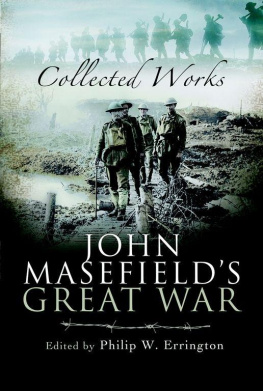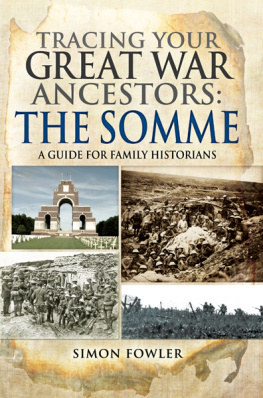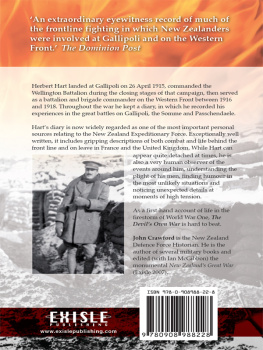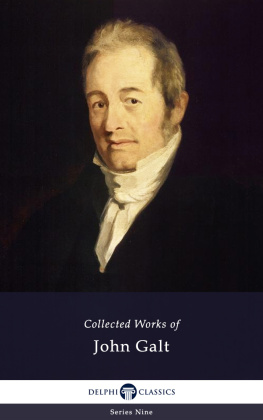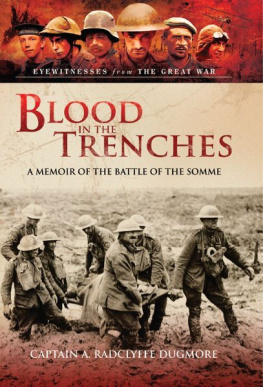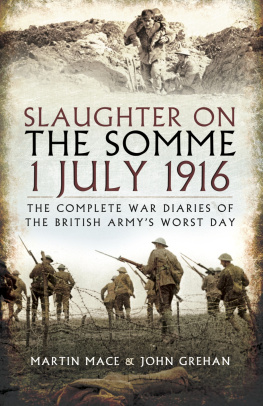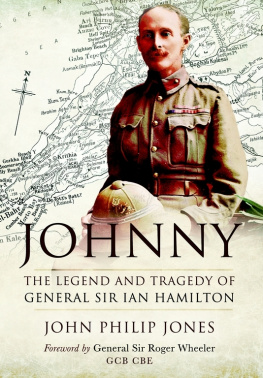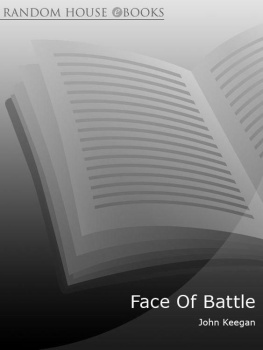First published in Great Britain in 2007 by
Pen & Sword Military Classics
an imprint of
Pen & Sword Books Ltd
47 Church Street
Barnsley
South Yorkshire
S70 2AS
Copyright The Estate of John Masefield 1914, 1915, 1916, 1917, 1918, 1919, 1920, 1922, 1923, 1928, 1933, 1939, 2007
Introduction, selection and editorial matter Philip W. Errington 2007
9781783409051
The right of Philip W. Errington to be identified as editor of this work
has been asserted by him in accordance with the Copyright,
Designs and Patents Act 1988.
A CIP catalogue record for this book is
available from the British Library.
All rights reserved. No part of this book may be reproduced or transmitted
in any form or by any means, electronic or mechanical including
photocopying, recording or by any information storage and retrieval
system, without permission from the Publisher in writing.
Typeset in Sabon by
Phoenix Typesetting, Auldgirth, Dumfriesshire
Printed and bound in England by
Biddles Ltd, Kings Lynn
Pen & Sword Books Ltd incorporates the Imprints of Pen & Sword
Aviation, Pen & Sword Maritime, Pen & Sword Military, Wharncliffe
Local History, Pen & Sword Select, Pen & Sword Military Classics and
Leo Cooper.
For a complete list of Pen & Sword titles please contact
PEN & SWORD BOOKS LIMITED
47 Church Street, Barnsley, South Yorkshire, S70 2AS, England
E-mail: enquiries@pen-and-sword.co.uk
Website: www.pen-and-sword.co.uk
Introduction
... no writing can give any effect of it and no historian know (let alone tell) the truth of it. So much of it all is noise and smell and motion, and shocks to mind and sense, that it cannot go into words...
On 4 August 1914, the date on which Great Britain declared war on Germany, Siegfried Sassoon was aged twenty-seven, Rupert Brooke had just turned twenty-seven, Wilfred Owen was twenty-one and John Masefield was thirty-six. The future Poet Laureate was not to fight in the trenches or to be counted among the Great War Poets. He was a generation apart and that period of time had allowed him experience as homeless vagrant, unskilled labourer, bar-hand and factory-worker of America. Masefields war commenced with work as a hospital orderly in France and then as commander of an ambulance boat at Gallipoli, but it was in 1916 when he undertook a lecture tour of the United States that his unique gifts began to be used. He reported back to the British Government and, aware of the need to counteract German lies about Gallipoli, wrote a book described by Edward Marsh as supreme and Neville Lytton as a masterpiece. Gallipoli led to a request from Douglas Haig for Masefield to chronicle the Battle of the Somme. If Masefield failed to contribute to the literary landscape of the Great War, his historical writing, propagandist journalism and lectures demonstrate a writer contributing to the immediate needs of his country at war. Masefield was the historian of the moment and it is through collecting together all his Great War work, published across three continents, that he emerges as a major figure: as historian, propagandist, journalist and best-selling writer. For the modern historian Masefield provides an eye-witness account which helped influence the reactions of a contemporary English and American audience to the Great War.
Masefield was born on 1 June 1878 in Ledbury, Herefordshire. Orphaned at an early age, he was educated aboard the Mersey school-ship Conway as training for service within the merchant marine. Life at sea proved a disaster, however, and Masefield deserted ship in New York in 1895 turning, instead, to homeless vagrancy. The opening poem in Masefields first volume of poetry comprises A Consecration in which the author states he will write of the under-dog. It was a sympathy resulting from personal experience. Eventually gaining employment in a New York saloon bar, and then a carpet factory, Masefield learnt of the dirt and the dross, the dust and scum of the earth at first-hand. He returned to England in 1897 and although plagued by ill-health, the would-be poet achieved success in 1899 with the publication of his first poem in a periodical. His first volume of verse, Salt-Water Ballads , was published in 1902 and a second volume, Ballads , followed in 1903. These collections include Sea-Fever and Cargoes respectively.
In 1903, Masefield married Constance de la Cherois Crommelin (1867 1960), a woman eleven and a half years his senior. The couple were to have one daughter, Judith (1904 1988) and one son, Lewis (1910 1942).
The early work of Masefield included poetry, short stories, historical works ( Sea Life in Nelsons Time , for example), novels, plays, childrens books and journalism. It was a time of literary apprenticeship for the writer but Masefield later wrote that his work was not what I had hoped. Masefield continued writing long narrative poetry in 1912 with The Widow in the Bye Street and Dauber in 1914.
Masefield was therefore a major literary figure when war was declared. He had upset poetic diction ( The English Review s publication of The Everlasting Mercy had printed blank spaces rather than offend the public with the word bloody); he had published Sea-Fever and Cargoes (which John Betjeman later stated would be remembered as long as the language lasts); he had enjoyed some success on the London stage; his novels had achieved cheap reprint status and his friends included Rupert Brooke, John Drinkwater, John Galsworthy, Harley Granville-Barker, Lady Gregory, Thomas Hardy, Gilbert Murray, Arthur Ransome, Charles Ricketts, Bernard Shaw, Jack B. Yeats and W.B. Yeats.
During the first part of 1914 John and Constance Masefield, whilst retaining their London home in Hampstead, moved their country retreat from Rectory Farm, Great Hampden, near Great Missenden in Buckinghamshire to Lollingdon Farm on the Berkshire Downs. It was here that the Masefields entertained Rupert Brooke in July 1914. Masefield later wrote:
In the first week of July, 1914, I was in an old house in Berkshire, a house built eight centuries before by the monks, as a place of rest and contemplation and beauty. I had never seen England so beautiful as then, and a little company of lovely friends was there. Rupert Brooke was one of them, and we read poems in that old haunt of beauty, and wandered on the Downs. I remember saying that the Austro-Serbian business might cause a European war, in which we might be involved, but the others did not think this likely; they laughed.
The events of August 1914 prompted Masefields first poem of the Great War. August, 1914 appeared in The English Review one month later. Masefield was conscious, as ever, of the past. The beauty of the English countryside had been loved by unknown generations. Into this setting the threat of war at hand and danger pressing nigh entered and the men of the past brooded by the fire with heavy mind before resolving to join the conflict. Masefield found continuity and companionship with the past and suggests above these fields a spirit broods. As early as July 1916 Masefield forbade the inclusion of the poem in an anthology stating... it is a special poem, about which I have a special feeling. Whilst reciting the poem at Yale University in 1916 he apparently broke down when he reached the line And died (uncouthly most) in foreign land. Masefield stood silent, unable to continue, before asking to be excused for not finishing the poem.

